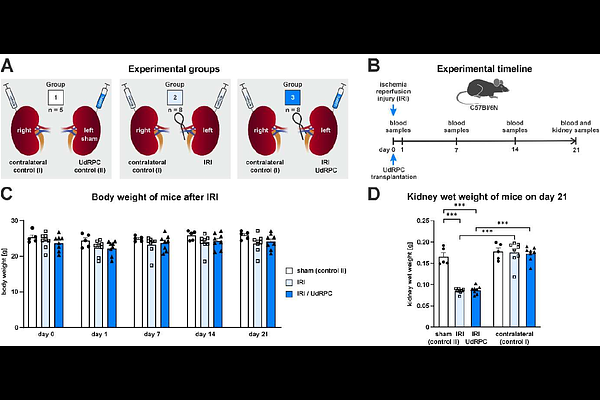Human Urine-derived SIX2-positive renal progenitor cells improve kidney injury in an IRI mouse model

Human Urine-derived SIX2-positive renal progenitor cells improve kidney injury in an IRI mouse model
Kordes, C.; Spitzhorn, L. S.; Bohndorf, M.; Ncube, A.; Thimm, C.; Erichsen, L.; Wruck, W.; Adjaye, J.
AbstractCells with the characteristics of renal progenitor cells are shed in urine. The aim of this study was to investigate whether these SIX2-positive urine-derived renal progenitor cells (UdRPC) have therapeutic potential in treating or managing acute to chronic kidney injuries. Human UdRPC were obtained from a woman aged 35 years, expanded, and characterized in vitro and finally transplanted unilaterally under the renal capsule of mouse kidneys that had undergone ischemia reperfusion injury (IRI). Analyses of blood serum from the mice revealed that the transplanted human UdRPC transiently influenced the secretome of the animals by triggering the release of inflammatory and angiogenic factors. Of obvious therapeutic relevance, however, was the finding that the transplanted cells suppressed renal fibrosis resulting from IRI. The expression of genes linked to inflammation and chronic kidney disease was also reduced in mouse kidneys in the presence of UdRPC. Ultimately, the human UdRPC were able to alleviate the severity of the injury through the amelioration of fibrosis but were unable to restore complete kidney function within 21 days. Nevertheless, the findings of this study demonstrate a significant influence of transplanted UdRPC on kidney fibrosis after acute to chronic injury presumably via an altered secretome.